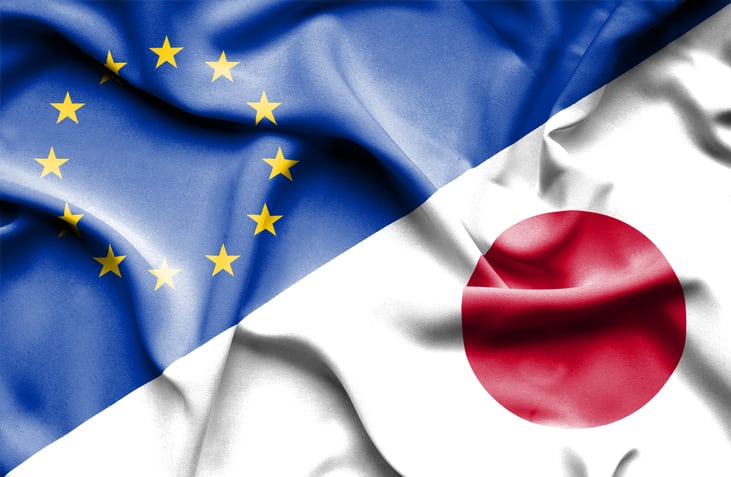EU politicians voted to ratify the EU-Japan Economic Partnership Agreement (EPA) at a Strasbourg plenary session yesterday.
This follows the deal’s approval by the Japanese national parliament last week (8 December).
"It will create an open trading zone covering 635 million people and almost one-third of the world's total Gross Domestic Product (GDP). The Strategic Partnership Agreement is the first ever bilateral framework agreement between the EU and Japan," said a statement by the Commission.
The EU currently exports €58 million worth of goods to Japan each year. However, agri-food products face high trade barriers, such as nearly 40% customs tax on beef, up to 40% on cheese, up to 30% on chocolate and 15% on wine.
"Almost five centuries after Europeans established the first trade ties with Japan, the entry into force of the EU-Japan Economic Partnership Agreement will bring our trade, political and strategic relationship to a whole new level," said president of the European Commission Jean-Claude Juncker.
'A global partnership'
Several food industry trade associations welcomed the vote. Mella Frewen, director general of FoodDrinkEurope said it would create new export opportunities for European food and drink manufacturers supporting jobs and growth.
"Preferential market access conditions will enable European producers to better respond to Japanese demand for high-quality European food and drinks," she added.
Pekka Pesonen, Copa-Cogeca secretary-general said the agreement was a great example of a global partnership that benefits both sides.
“In these turbulent times, the EU needs to send a clear message to the world that its single market remains open to the global economy as long as the level playing field is secured.”
The European Liaison Committee for Agricultural and Agri-Food Trade (CELCAA), which represents agri-food wholesalers and traders also welcomed the vote.
Its secretary-general Pascale Rouhier said: “When implemented, the EPA will boost the competitiveness of the EU agri-food sector and commodities in the Japanese market while respecting the sensitivities of Japan’s agri-sector.”
Big business bias?
The negotiations for the Japan-EU free trade deal started in March 2013 and wound up in December 2017.
Public interest group Corporate Europe Observatory (CEO) said the deal is strongly biased towards the interests of big businesses.
According to files obtained by CEO via freedom of information requests, members of the European Commission met with 190 corporate lobby groups and no trade unions between January 2014 and January 2018.
It also said that of those who had access to EU officials writing the trade deal, 89% were trade associations and only 4% were public interest groups such as NGOs, farmers’ unions and consumer groups.
The EU agri-food sector had the highest number of meetings with the Commission (47) than any other single sector industry.

